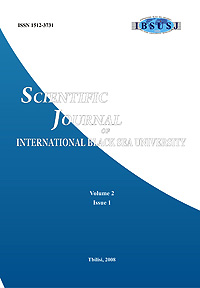Politeness of Discourse and Vocabulary Teaching
Keywords:
politeness of discourse, unpleasant words, slang, curse words, taboo words, irony, dropping the negative, strategies of political correctnessAbstract
The article is a review of the few existing publications dealing with problem of politeness of discourse in the process of vocabulary teaching. While communicatively teaching vocabulary, we should keep in mind that the goal is not just memorization by learners of lists of words, their semantics, combinability, etc. and successful performance of some exercises, but first of all it is the formation of learner's ability to communicate in the target language (to apply the acquired vocabulary as efficiently as possible). From this point of view some issues of politeness of discourse are more crucial than the correct pronunciation of the word or some other aspect of linguistic correctness. Not only stylistic appropriateness makes our utterances polite, but also tact. Though "tact" is definitely not a linguistic category, it has to be taught in vocabulary classes. Minorities (taking into consideration their gender, age, race, nationality, physical defects, etc.), for example, should be labeled very carefully. What kind of utterance is considered to be polite / rude depends on the degree of formality / informality of the situation (the so-called "insider" or "outsider" talk). Language learners should also be aware that irony and sarcasm can turn any polite word into an impolite one. Language learners need both information about unpleasant words and strategies that will permit them to be not only linguistically, but also "politically" correct. Some of such strategies and ways to form them are discussed in the article.Downloads
Published
2008-05-15
Issue
Section
Linguistics and Literature
License
Authors who publish with this journal agree to the following terms:
- Authors retain copyright and grant the journal right of first publication with the work simultaneously licensed under a Creative Commons Attribution License that allows others to share the work with an acknowledgement of the work's authorship and initial publication in this journal.
- Authors are able to enter into separate, additional contractual arrangements for the non-exclusive distribution of the journal's published version of the work (e.g., post it to an institutional repository or publish it in a book), with an acknowledgement of its initial publication in this journal.
- Authors are permitted and encouraged to post their work online (e.g., in institutional repositories or on their website) prior to and during the submission process, as it can lead to productive exchanges, as well as earlier and greater citation of published work (See The Effect of Open Access).

